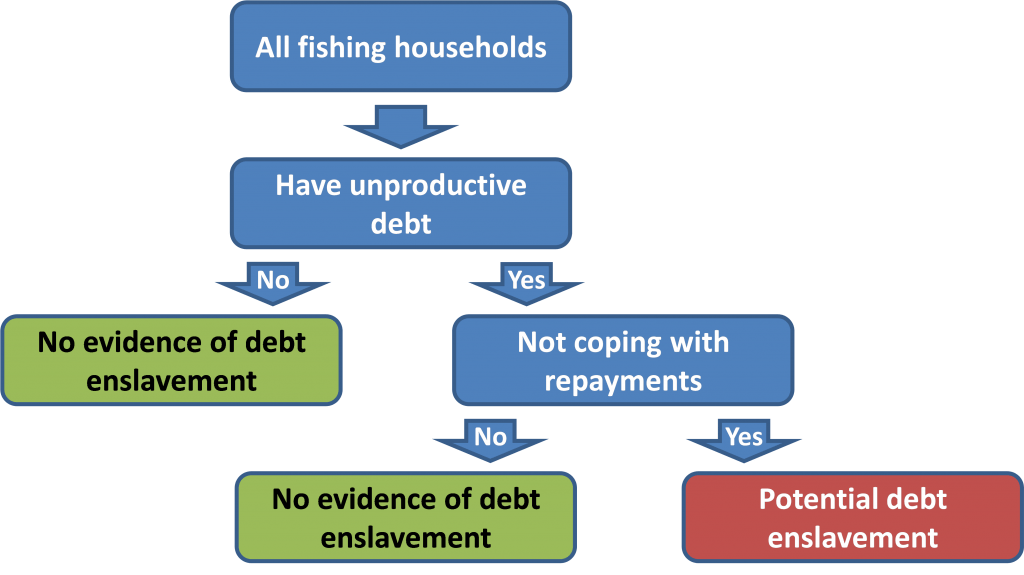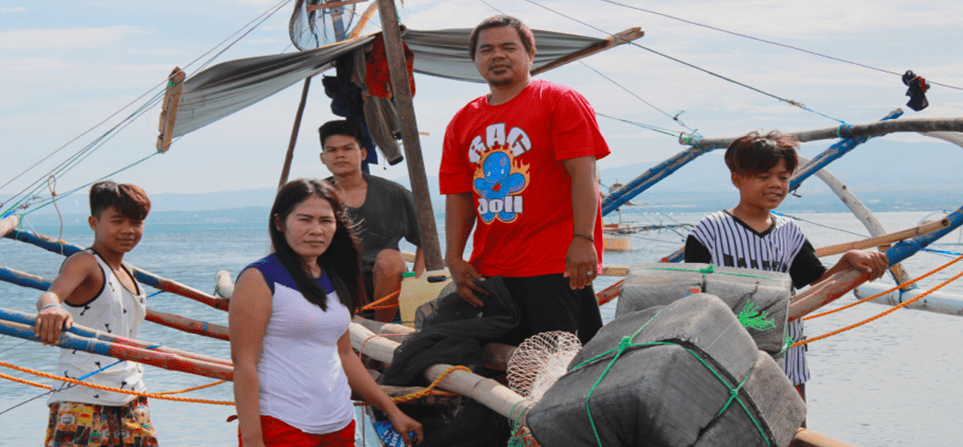Photo credit: Plan International
As part of the Plan International’s Safeguarding Against and Addressing Fishers’ Exploitation at Sea (SAFE Seas) project, 210 women, most of whom are wives of fishers, were surveyed in Kiamba and Glan, Sarangani and General Santos City in the Philippines. The mixed-methods study, which Rapid Asia carried out, looked closely at the effects of forced labor (FL) and trafficking in persons (TIP) on male fishers’ female relatives.
When her husband lost his vision due to an injury on a fishing-vessel, Nini, a 49-year-old mother of two living in General Santos City, had to go to a loan shark to help pay for his medications. Without any medical support from her husband’s employer, the injury became financially devastating for her family.
Living not far from Nini’s family, the wife of a fisherman who wished not to be named discussed her husband’s predicament. After returning home from a month at sea with very little to show for it, he was forced to take out cash advances from his boat’s owner to pay for basic necessities. As his debt increased, he was unable to change jobs.
These stories are commonly shared throughout the southern Philippines, where more than 1.9 million workers are employed in the fishing industry and at risk of TIP and FL. While women are often not the ones working aboard vessels, many of them assume the responsibility of taking out and managing loans to ensure their household’s subsistence while their husbands are out at sea for prolonged periods. Those offering the loans are usually the boat owners, leaving many households indebted to the husband’s employer.
The study revealed several interesting facts. First, most of the women surveyed were unaware of the terms FL and TIP, possibly leading to a lack of awareness among many that abusive practices are illegal. For example, only 21% of the women surveyed said they were familiar with FL and TIP. Moreover, many women had come to accept that abuses are normal and part of the job. Second, gender norms and social values determine the role of women and men both within and outside the household. Beliefs around gender roles are reflected in the division of work in the home. In the vast majority of fishing households, women do most of the daily household chores, including preparing food, buying groceries, cleaning, washing, and looking after children. Despite having full domestic responsibility, many women also assisted in fishing work (i.e. repairing nets, cleaning fish etc.) without monetary compensation. Third, women whose husbands experienced FL or TIP had experienced negative impacts on the family. Stress and having to work extra hours to make ends meet were the most commonly mentioned consequences on women, followed by debt burden, and for some, debt enslavement.
Two conditions are necessary for debt enslavement (Figure 1). First, the debt itself must be regarded as unproductive; second, the holder of the debt is struggling with repayments. A case for potential debt enslavement is valid when both conditions are met. Overall, 32% of fishing households have unproductive debt, and 22% stated they had difficulty coping with debt repayments. Households experiencing both represented the prevalence of debt enslavement and was estimated at 16%.

Figure 1. The concept of debt enslavement
The study will help further strengthen the SAFE Seas project’s implementation and inform policymakers in the Philippines. Key recommendations include raising awareness about FL and TIP, enabling access to affordable loans and social protection programs, promoting livelihood and skills development for greater agency and empowerment of fisher households, and building capacity and coordination. Full report here.
If you found this article useful, please remember to ‘Like’ and share on social media, and hit the ‘Follow’ button never to miss an article. You may also want to read this article: Forced Labour in the Thai Fishing Industry.
About the authors: Daniel Lindgren is the Founder of Rapid Asia Co., Ltd., a social research and consulting firm based in Bangkok that specializes in evaluations for programs, projects, social marketing campaigns and other social development initiatives. David Young is an independent consultant working with Rapid Asia as a member of their expert panel of consultants. Learn more about our work at www.rapid-asia.com.

